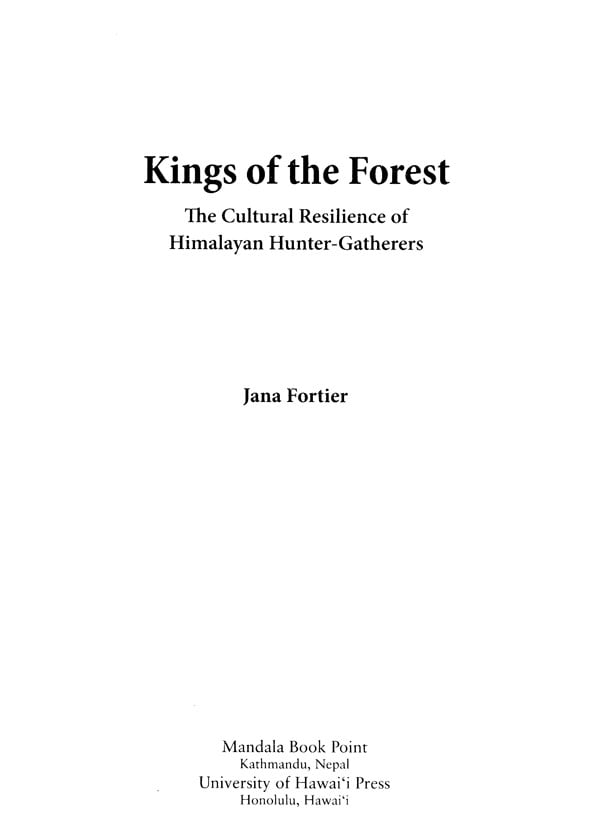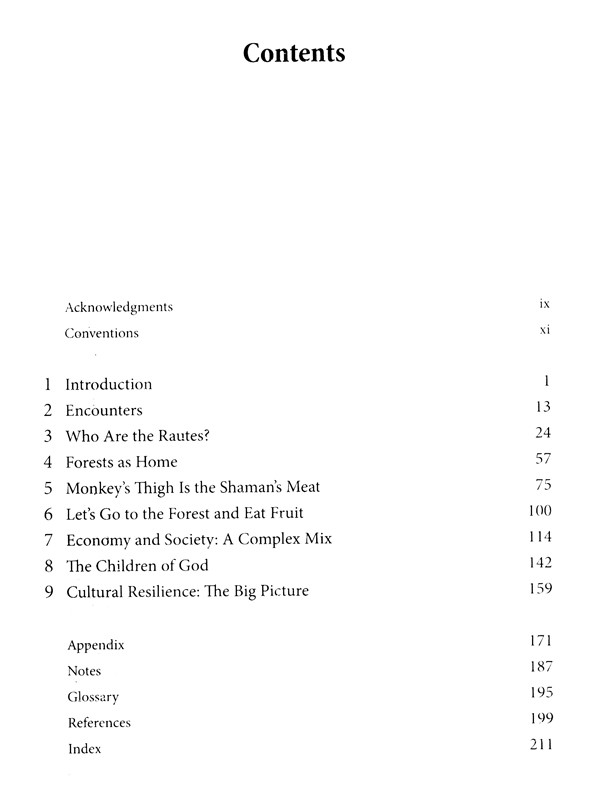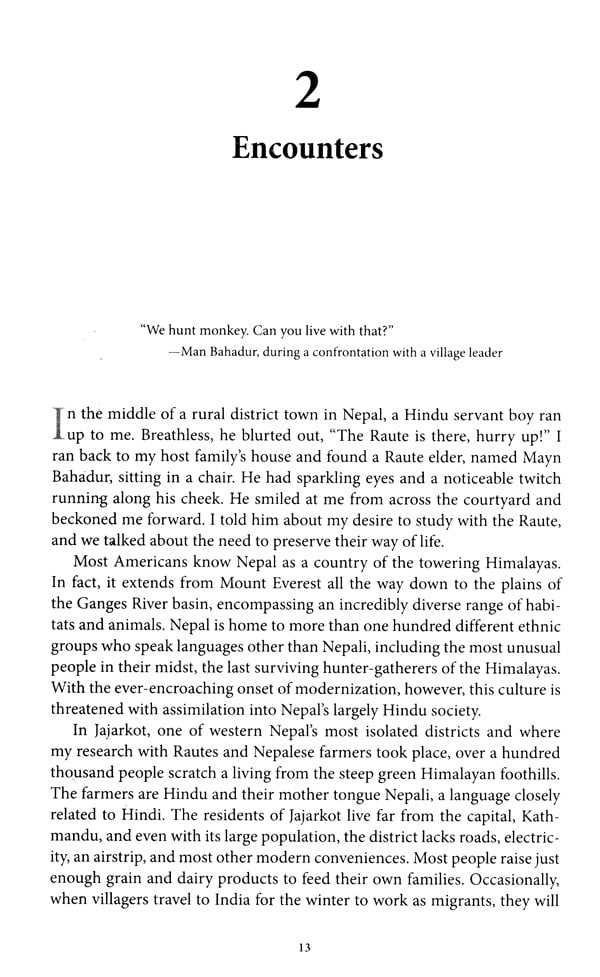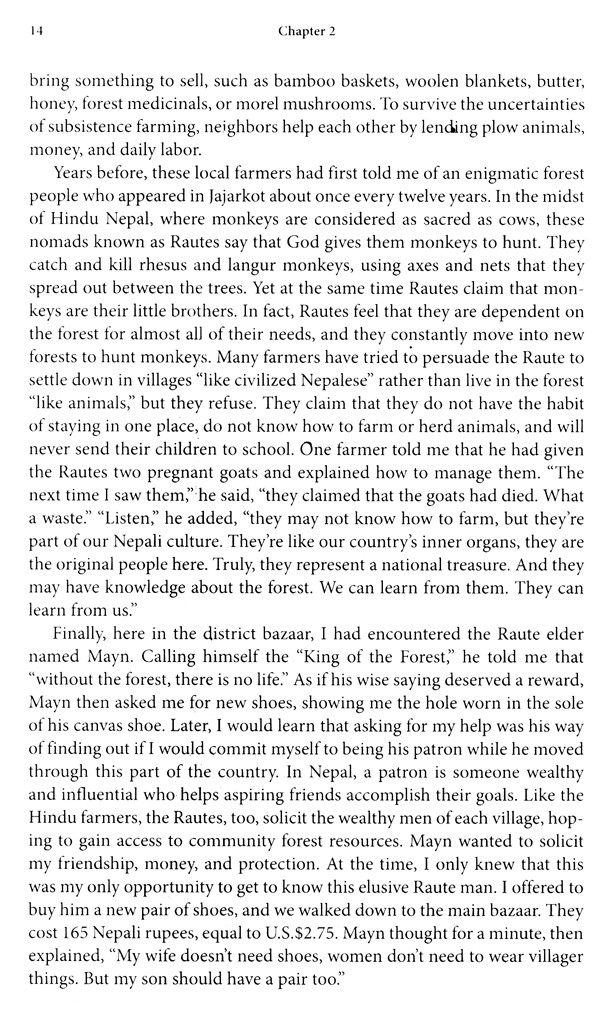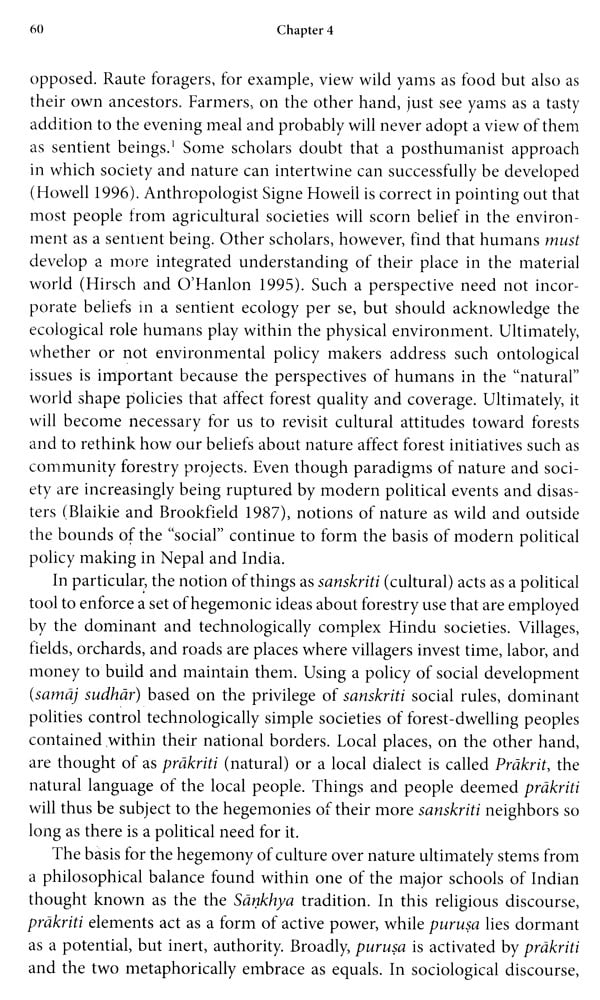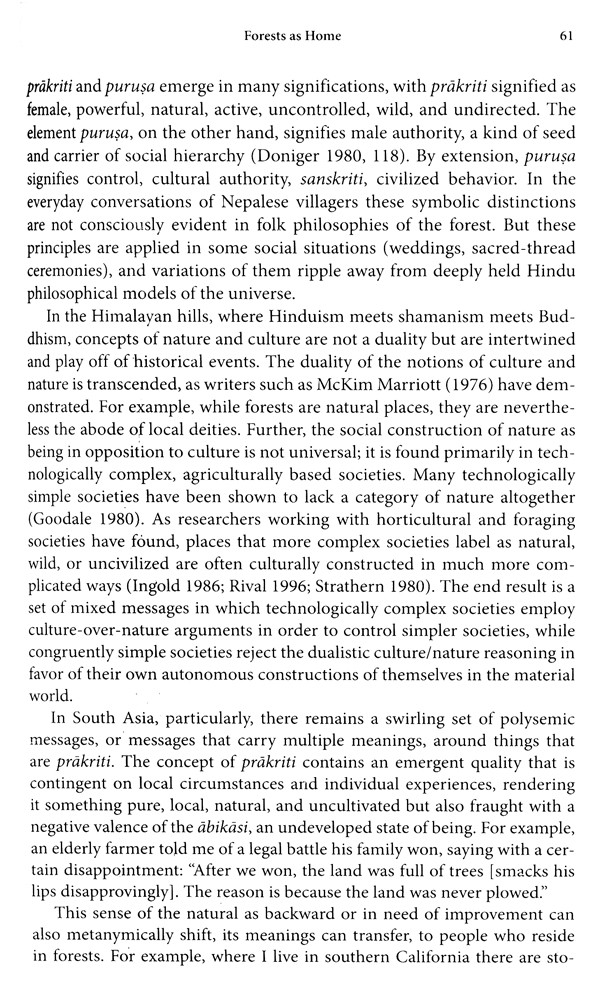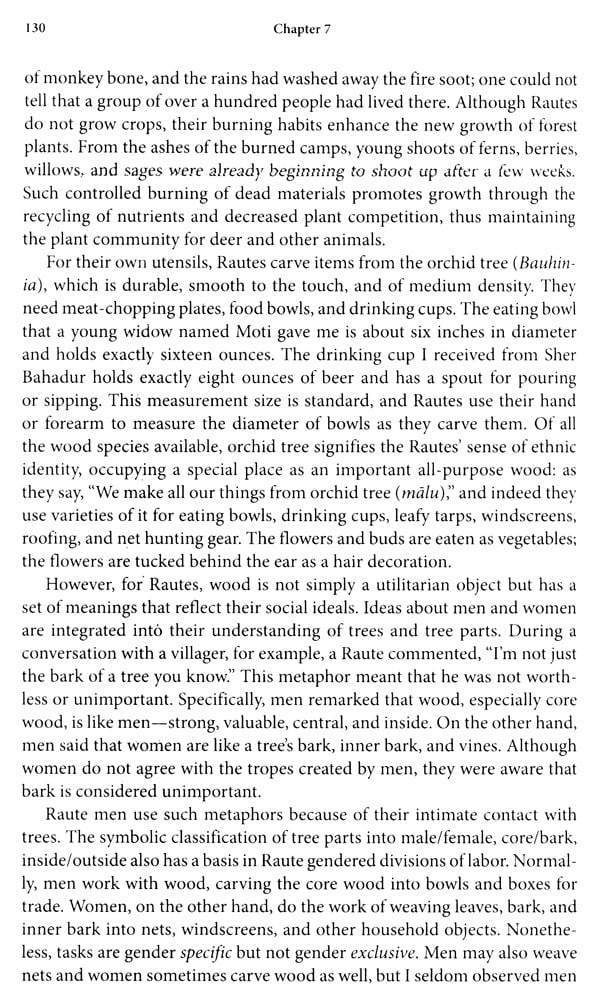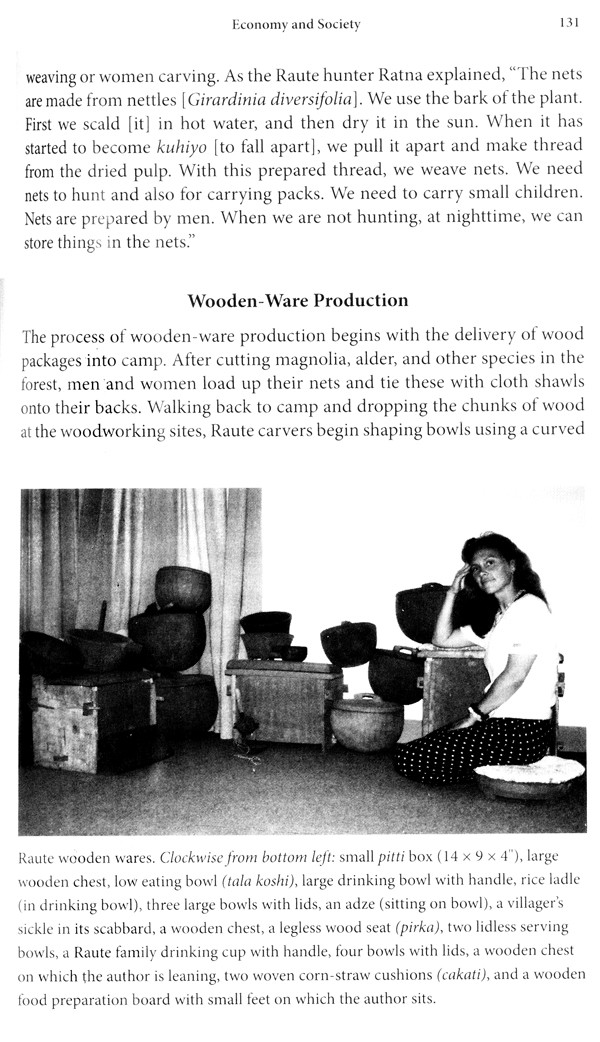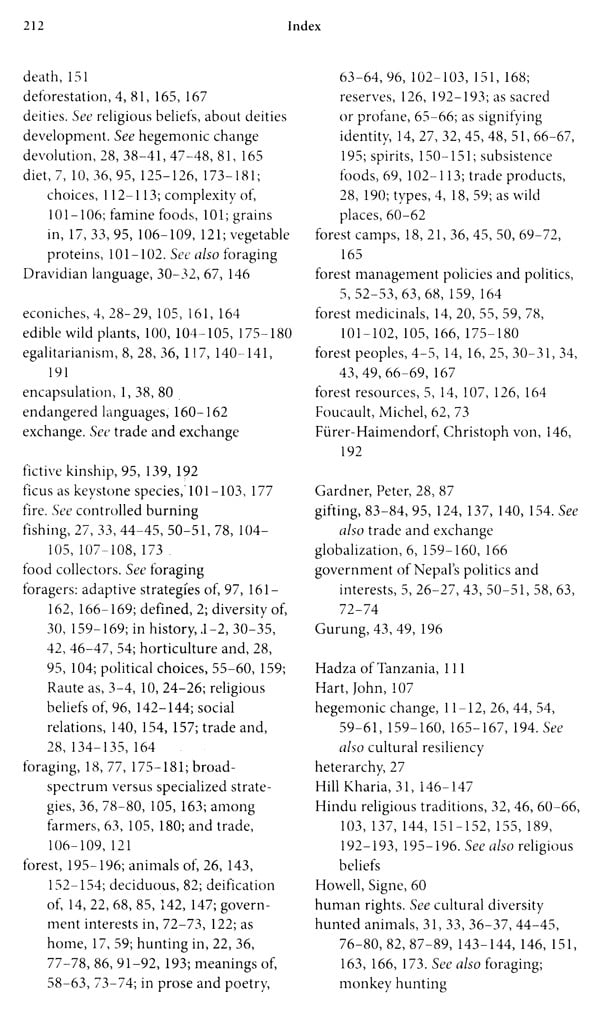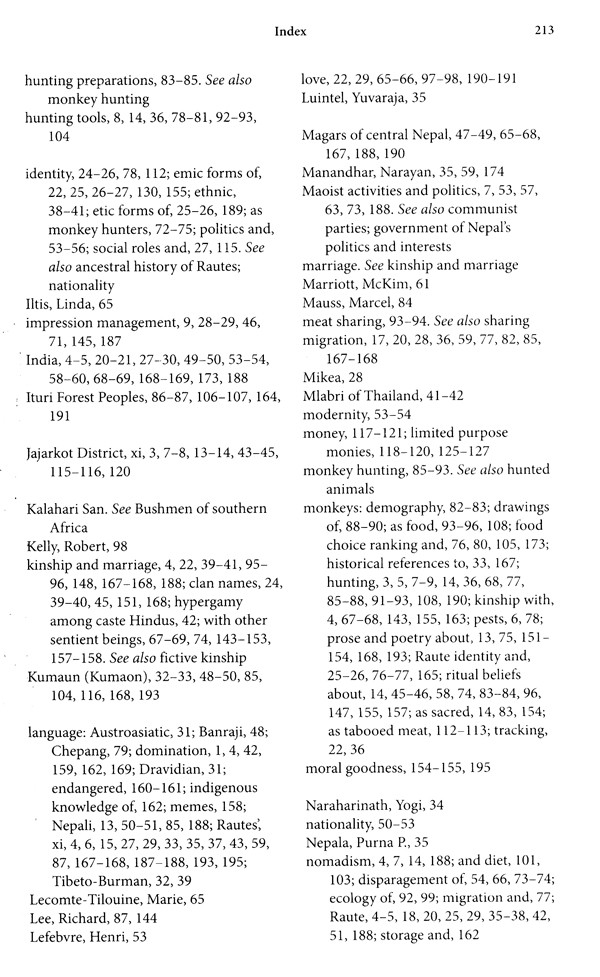
Kings of the Forest- The Cultural Resilience of Himalayan Hunter-Gatherers
Book Specification
| Item Code: | UAT719 |
| Author: | Jana Fortier |
| Publisher: | Mandala Book Point, Nepal |
| Language: | English |
| Edition: | 2009 |
| ISBN: | 9789994655182 |
| Pages: | 226 (Throughout B/w Illustrations) |
| Cover: | PAPERBACK |
| Other Details | 9.50 X 6.50 inch |
| Weight | 360 gm |
Book Description
Even with the rise of agriculture, hunting and gathering did not simply wither away. Only five hundred years ago, with the beginning of European incursions into other countries, people who relied upon food collecting rather than food production continued to occupy almost half of the world. Hunters and gatherers, also known as foragers, occupied all of Australia, most of North America, and large areas of South America, Africa, and Asia. But by the turn of the twentieth century, while dozens of foraging societies remained viable, most others had been encapsulated into surrounding dominant agrarian regimes. Post-foraging societies, many located in North America and Australia, were subject to intense pressures to assimilate, and many faced the imminent demise of their cultures and languages. They were pressed to settle down, learn the dominant language, attend majority culture schools, and intermarry into other families. These assimilative mea sures largely succeeded, yet memories of foraging lifestyles have persisted and have even formed the basis of indigenous people's political movements worldwide as they struggle to preserve their cultural autonomy.
As the twenty-first century or, from an environmental perspective, the eleventh millennium of the Holocene begins, we can see all contemporary foraging societies being assimilated into agrarian state systems on every continent of the world.
**Contents and Sample Pages**
